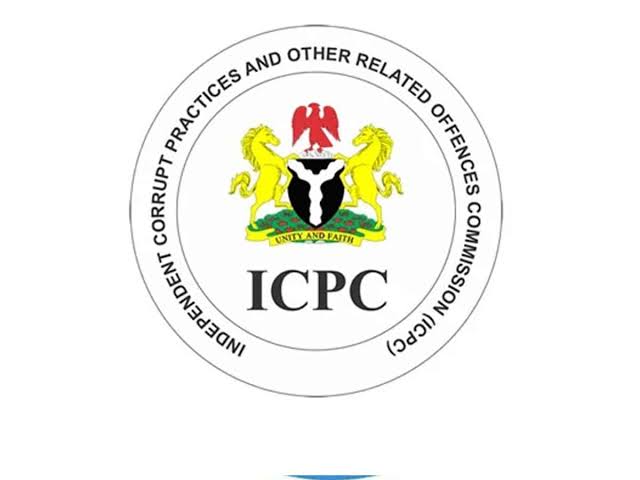The Chairman, Independent Corruption Practices and other Related Offences Commission(ICPC), Dr Musa Aliyu, has stressed the need to build a unified front against corruption in the country.
The spokesperson for the Commission, Demola Bakare, in a statement on Sunday, quoted Aliyu as saying that the ICPC had put in place strong measures to tackle the menace.
He said that the commission had invited the Attorneys-General(AGs), and Commissioners for Justice in the 36 states and other stakeholders for a pivotal roundtable on Monday in Abuja.
He said the meeting would address the challenges of corruption in Nigeria.
According to him, the AGs Summit with the theme: “Building a Unified Front Against Corruption in Nigeria,” is organised by the ICPC with support from the MacArthur Foundation.
Aliyu explained that the strategic initiative was aimed at enhancing anti-corruption efforts across all levels of government.
“It will also strengthen collaboration between the ICPC and the AGs nationwide in advancing the National Anti-Corruption Strategy (NACS).
“The event will feature the Attorney-General of the Federation(AGF), Mr Lateef Fagbemi, as the special guest of honour, while former AGF, Kanu Agabi, will deliver the keynote address.
“A dynamic panel discussion will also take place, led by former Lagos State AG, Moyosore Onigbanjo,” he said
According to him, other notable contributors include Mr Ekpo Nta, former Chairman of ICPC, and Prof. Mohammed Tabiu of Bayero University, Kano
Also expected are Prof. Abdulkarim Kana of Nasarawa State University, Keffi, and Hauwa Abubakar, Attorney-General of Borno State.
“This engagement seeks to identify and address the systemic challenges within the justice system that contribute to corruption, hindering ICPC’s efforts.
“The summit will also develop effective strategies to enhance ICPC’s capacity to prevent corruption, foster stronger understanding between the ICPC and the AGs, and identify specific areas for collaboration between the ICPC and state governments,” he said.(NAN)
FG distributes 1.3m bottles of Multiple Micronutrient Supplements to pregnant women
The Federal Government says it has distributed over 1.3 million bottles of Multiple Micronutrient Supplements (MMS) across 12 states, with an additional three million bottles scheduled for delivery by end of September.
The acting Director, Information and Public Relations, Ministry of Health and Social Welfare, Mr Ado Bako, disclosed this in a statement on Sunday in Abuja.
According to him, the supplements are to address the nutrition needs of pregnant women and significantly reduce the prevalence of micronutrient deficiency.
The News Agency of Nigeria (NAN) reports that MMS for pregnant women is a daily dose of 15 essential vitamins and minerals, including iron and folic acid, which ensures that they receive more of the essential nutrients that contribute to healthier pregnancies and provide better birth outcomes.
It is aimed at reducing the rate of maternal and infant mortality in Nigeria.
NAN also reports that the Federal Government adopted the use of MMS based on the 2020 World Health Organisation (WHO) recommendation on antenatal care for positive pregnancy experience.
Bako said that the MMS initiative aligns with WHO recommendations and the second pillar of the ministry’s four-point agenda to improve health outcomes.
He added that this was particularly in light of the Global Nutritional Report 2022, which revealed that the country was a long way from reducing anaemia among women of reproductive age.
“In Nigeria, Iron Deficiency Anaemia (IDA) remains the most common micronutrient deficiency, affecting 60 per cent of pregnant women, according to the Nigeria Demographic and Health Survey (NDHS) 2018.
“These deficiencies not only put women at higher risk of severe health complications during pregnancy but also increase the likelihood of low birth weight, stillbirth and developmental delays in children.
“MMS offers a comprehensive solution to these challenges. The daily supplement containing 15 essential vitamins and minerals designed to be taken throughout pregnancy, has emerged as a cost-effective solution in global maternal health interventions.
“This is with a proven ability to reduce the risk of low birth weight by 21 per cent, stillbirth by nine per cent, and Small for Gestational Age (SGA) cases by 10 per cent.”
Bako said that the introduction of MMS was part of Federal Government’s broader strategy to enhance maternal and child health services.
He recalled that in 2021, MMS was incorporated into the National Guidelines for the Prevention and Control of Micronutrient Deficiencies, demonstrating the government’s commitment to improving nutrition as an integral component of antenatal care.
Bako said that the Federal Government estimated a demand of 421 million MMS tablets for 2024 to meet the needs of pregnant women.
“While recent support and donations from various international partners like UNICEF and the Bill and Melinda Gates Foundation have been beneficial to this initiative, it is imperative to note that the doses received are merely a top-up to the doses already allocated for the rollout.” (NAN)









Got a Questions?
Find us on Socials or Contact us and we’ll get back to you as soon as possible.